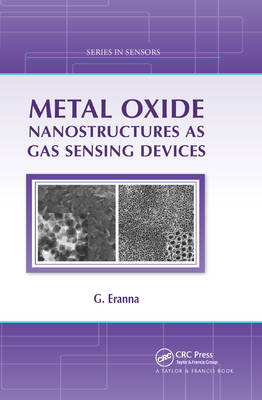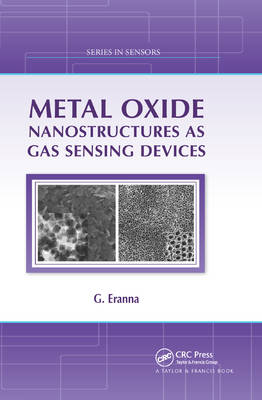
- Retrait gratuit dans votre magasin Club
- 7.000.000 titres dans notre catalogue
- Payer en toute sécurité
- Toujours un magasin près de chez vous
- Retrait gratuit dans votre magasin Club
- 7.000.000 titres dans notre catalogue
- Payer en toute sécurité
- Toujours un magasin près de chez vous
Description
Metal Oxide Nanostructures as Gas Sensing Devices explores the development of an integrated micro gas sensor that is based on advanced metal oxide nanostructures and is compatible with modern semiconductor fabrication technology. This sensor can then be used to create a compact, low-power, handheld device for analyzing air ambience.
The book first covers current gas sensing tools and discusses the necessity for miniaturized sensors. It then focuses on the materials, devices, and techniques used for gas sensing applications, such as resistance and capacitance variations. The author addresses the issues of sensitivity, concentration, and temperature dependency as well as the response and recovery times crucial for sensors. He also presents techniques for synthesizing different metal oxides, particularly those with nanodimensional structures. The text goes on to highlight the gas sensing properties of many nanostructured metal oxides, from aluminum and cerium to iron and titanium to zinc and zirconium. The final chapters deal with existing and future devices that are based on nanostructures.
Miniaturized systems that analyze air ambience need sensors capable of identifying different gaseous species. Exploring state-of-the-art gas sensing devices, this book shows how nanostructured metal oxides are ideally suited for use as gas sensing elements.
Spécifications







